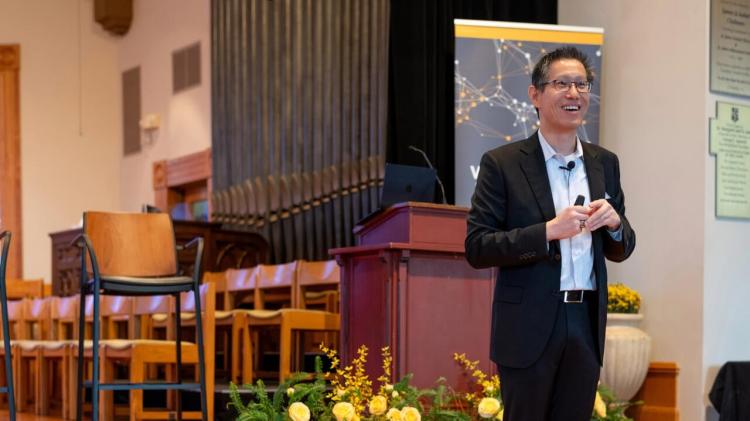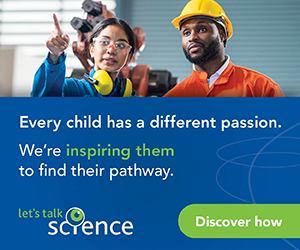Professor Jimmy Lin has been named a 2024 Fellow of the Association for Computational Linguistics in recognition of his significant contributions to question answering and information retrieval.
Established in 2011 by the Association for Computational Linguistics, ACL fellowships are conferred annually to members whose contributions to the field have been extraordinary through their scientific and technical excellence, service to the association and the community, along with broader educational and outreach activities.

Photo credit: Joe Petrik.
"Congratulations to Jimmy on being named a Fellow of ACL," said Raouf Boutaba, University Professor and Director of the Cheriton School of Computer Science. "He is one of only nine computer scientists worldwide in 2024 and the first ever from the University of Waterloo to receive this distinction. This recognition also marks the third time Jimmy's research in natural language processing and information retrieval has been honoured. He was named a 2022 Fellow of the Association for Computing Machinery for his contributions to question answering, information retrieval, and natural language processing, as well as being inducted into the SIGIR Academy in 2023 for his significant, cumulative contributions to developing the field of information retrieval."
About Professor Lin's research
Professor Lin is a Cheriton Chair at Waterloo's Cheriton School of Computer Science, a prestigious position held by senior researchers who conduct transformational work. He also serves as the Chief Scientist of Primal, a Waterloo-based company focused on building enterprise-grade AI solutions that exploit the best of what neural networks and knowledge graphs have to offer. Previously, he was the Chief Scientist of RSVP, a Waterloo-based startup that builds deep natural language understanding technologies to facilitate seamless dialogues between users and systems.
Since 2021, Professor Lin has been the co-director of the Waterloo Data and Artificial Intelligence Institute, which aims to promote cross-disciplinary research at the frontiers of artificial intelligence and its applications across all faculties at Waterloo.
For more than 25 years, Professor Lin has connected users with relevant information by exploring the intersection of natural language processing and information retrieval. In the mid-1990s, when he began working on question answering (QA) systems, these early technologies could already respond to natural language questions such as When was Albert Einstein born?' instead of forcing users to sift through a bunch of links to find relevant information.
"With ChatGPT and other large language models, this is of course no big deal today," Professor Lin says, "but these capabilities that we now take for granted can trace their intellectual lineage back several decades."
Access to information is a fundamental human right, Professor Lin says. The Universal Declaration of Human Rights by the United Nations articulates that everyone has the right "to seek, receive and impart information and ideas through any media and regardless of frontiers." To this end, Professor Lin has devoted his career to developing technological capabilities, including search, question answering, summarization, recommendation, and other forms of information access, to promote these ideals.
Over the years, Professor Lin has worked on systems specifically designed for diverse populations, ranging from lay searchers of the web to specialists, including medical doctors, historians, and data scientists. More recently, his work has explored multilingual information access, focusing on low-resource languages that have received little attention from researchers, along with multimodal information access, enabling search across both text and images.
Beyond his research, Professor Lin tirelessly promotes the adoption of generative AI technology in all sectors of the economy, helping organizations realize its transformative potential. "The impact of large language models will be no less than the invention of the steam engine," Professor Lin says. He is also passionate about AI literacy and equipping all citizens with the necessary skillset to navigate this emerging AI world, starting with K-12 education. While he expresses concerns about many aspects of AI deployments and endorses the necessity of safeguards, Professor Lin is optimistic about the future at the dawn of this new AI era.












